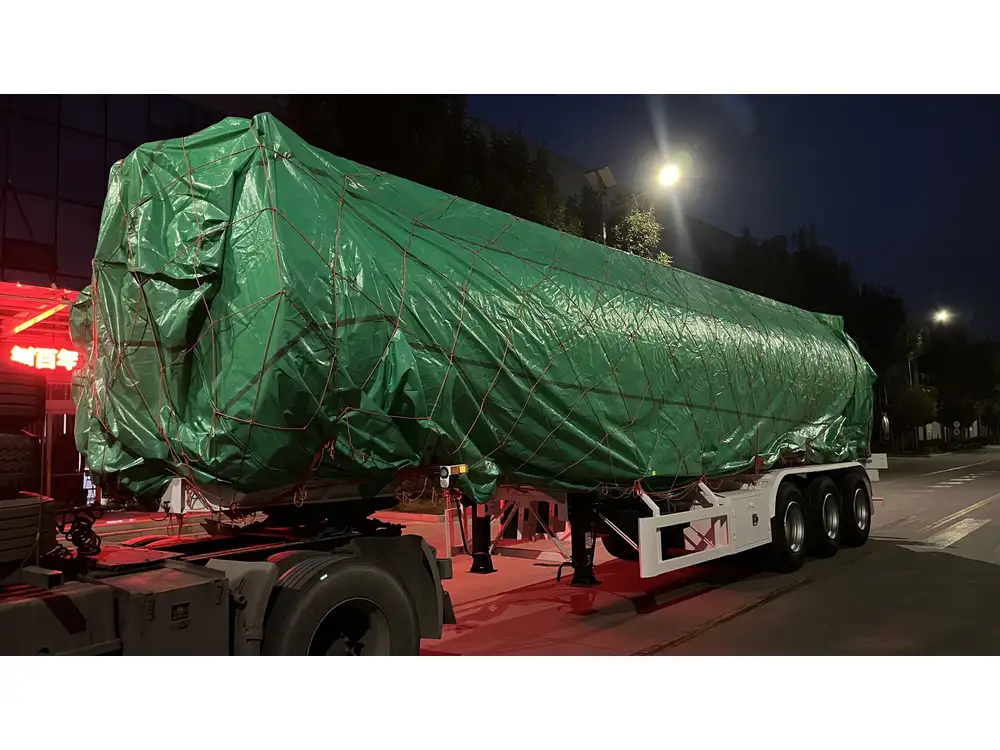When navigating the intricate landscape of transportation solutions in Equatorial Guinea, the importance of having the right fuel tanker cannot be overstated. Whether for oil companies, logistics providers, or infrastructural agencies, the capacity, durability, and efficiency of fuel tankers are paramount. In this article, we delve into various aspects of fuel tankers, particularly their specifications, benefits, and the superior offerings by CarMax Vehicle.
Understanding the Requirements for Fuel Tankers
When considering purchasing fuel tankers in Equatorial Guinea, it’s crucial to recognize the unique needs of the region. Here’s a breakdown of what buyers should contemplate:
1. Capacity and Specifications
Fuel tankers come in various capacities, typically measured in litres. For instance, our fuel tankers vary from 2,000 litres to over 30,000 litres. It’s essential to align the tanker’s capacity with operational requirements. Below is a brief table outlining the common capacities:
| Tank Capacity | Typical Uses |
|---|---|
| 2,000 litres | Small fleet operations |
| 10,000 litres | Regional transportation |
| 20,000 litres | National distribution |
| 30,000 litres | Bulk fuel storage and supply |
Choosing the right capacity can significantly enhance logistics efficiency, ensuring timely deliveries without unnecessary reloading.

2. Material and Build Quality
Fuel tankers must withstand various environmental challenges, particularly in the humid and sometimes harsh climates of Equatorial Guinea. At CarMax Vehicle, our tankers are manufactured using high-grade steel, ensuring sturdiness and longevity. Other features to consider include:
- Corrosion resistance: Essential for durability.
- Reinforced structures: To withstand heavy loads.
3. Compliance and Regulations
Equatorial Guinea has specific regulatory requirements regarding fuel transportation. It’s imperative to choose tankers that comply with:
- Are internationally recognized safety standards.
- Local and regional legislation on hazardous materials.
Our fuel tankers are certified to meet and exceed these requirements, ensuring peace of mind in operations.
Benefits of Choosing Our Fuel Tankers
Opting for CarMax Vehicle’s fuel tankers goes beyond mere capacity. Here are several compelling reasons why our products stand out:

1. Enhanced Safety Features
Safety always comes first, especially in the transportation of flammable liquids. Our tankers are equipped with:
- Anti-surge baffles: To minimize liquid movement during transit.
- High-pressure relief valves: To avert potential hazards.
2. Fuel Efficiency
Reducing fuel consumption directly impacts operational costs. Our tankers are designed to optimize flow rates, ensuring that less fuel is wasted during transportation.
3. Customization Options
Every operational need is unique. That’s why we offer customization options such as:
- Custom tank sizes.
- Specialty compartments for different fuel types.

4. After-Sales Support
Choosing CarMax Vehicle means you are not just purchasing a product—you are gaining a partner. Our after-sales support includes:
- Maintenance services: Regular inspections and servicing.
- Spare parts availability: Ensure your fleet remains operational without unnecessary downtime.
Comparative Analysis of Fuel Tankers
To better illustrate the advantages of our tankers, a comparative analysis can provide clearer insights for potential buyers. Below is a comparison table among different manufacturers, highlighting key features:
| Feature | CarMax Vehicle | Competitor A | Competitor B |
|---|---|---|---|
| Tanker Material | High-grade steel | Standard steel | Aluminum option |
| Maximum Capacity (litres) | 30,000 | 25,000 | 20,000 |
| Customization Availability | Yes | Limited | No |
| Safety Features | Advanced | Basic | Moderate |
| Warranty Period | 2 years | 1 year | 1.5 years |
This comparison highlights the superior build quality, customization, and enhanced safety that our fuel tankers bring to the table, making them the preferable choice for fleet operators in Equatorial Guinea.
Key Considerations Before Purchasing
Before stepping into the purchasing process, prospective buyers should review the following considerations:

1. Total Cost of Ownership
Beyond the initial purchase price, prospective owners should evaluate:
- Operational costs: Fuel consumption rates, maintenance, and repairs.
- Resale value: Durable tankers often hold their value better over time.
2. Supplier Reputation
Select a manufacturer with a proven track record. CarMax Vehicle has been a reliable partner in the industry for years, known for quality and after-sales support.
3. Feedback from Current Users
Examining reviews and testimonials can provide a glimpse into real-world performance. Requesting case studies can also help verify a manufacturer’s claims.

Conclusion
In a burgeoning economy like Equatorial Guinea, the demand for reliable and efficient fuel transportation methods is significant. Investing in the right fuel tanker is crucial for operational success, presenting a myriad of advantages including enhanced safety, superior build quality, and compliance with regulations.
As you explore fuel tanker litres for sale in Equatorial Guinea, consider CarMax Vehicle not just as a manufacturer, but as a partner committed to your success. Our extensive product range and customization options ensure you find the perfect solution tailored to your operational needs.
Feel free to reach out to us for specialized consultations or inquiries!
FAQs
What types of fuel can your tankers transport? Our tankers are designed to safely transport various types of fuel, including diesel, gasoline, and crude oil.
How do I maintain my fuel tanker? Regular inspections, cleaning, and servicing at designated intervals are essential for maintaining tanker efficiency and safety.
Can I customize the size of the fuel tanker? Yes, CarMax Vehicle offers customization options to meet your specific capacity and operational requirements.
What safety certifications do your tankers have? Our fuel tankers comply with both international safety standards and local regulations specific to the transportation of hazardous materials.













Reviews
There are no reviews yet.